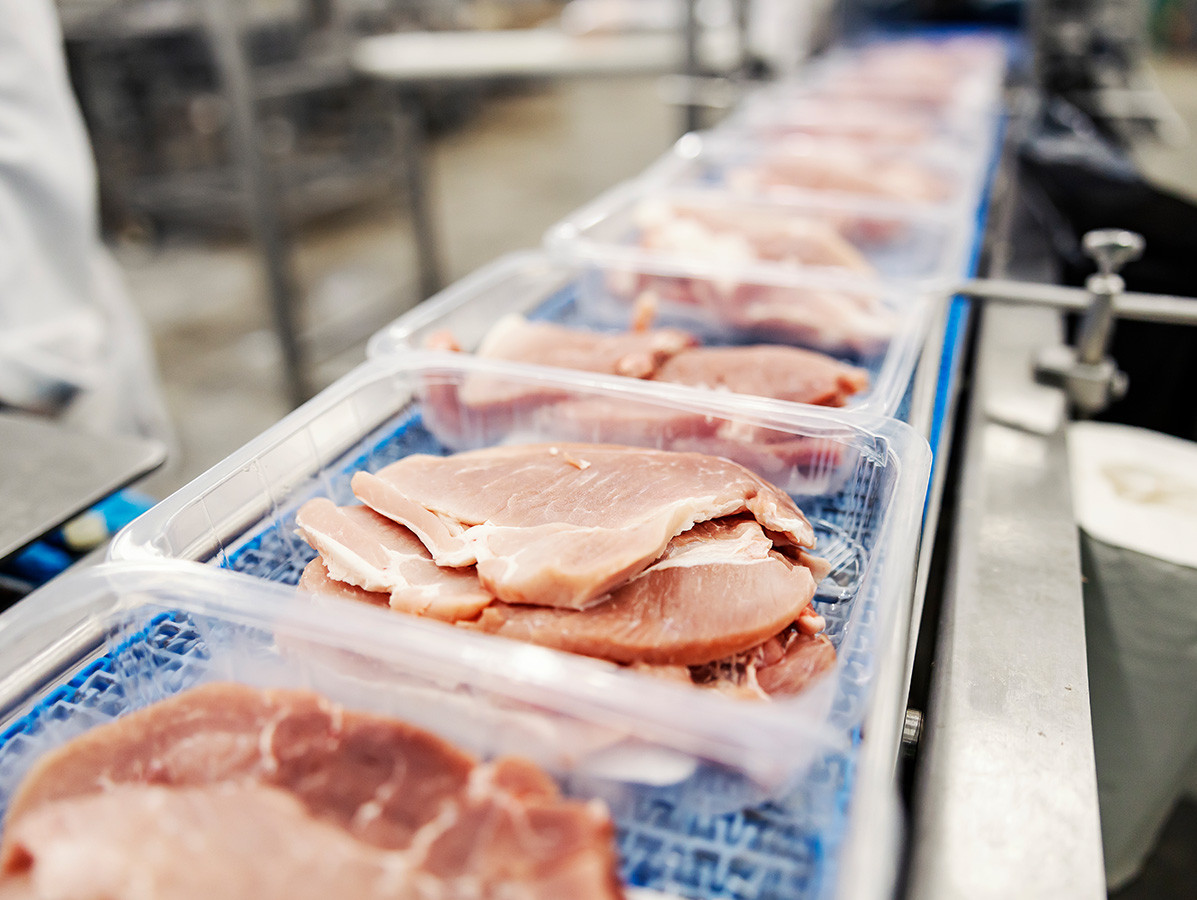
The food industry is struggling with declining production due to several challenges. Soaring supermarket product prices have led to a decline in food demand, while supply is under pressure due to scarcer raw materials. This results in a slight sales decline for food producers.
ABN AMRO predicts that production will also decline in 2023, with lower production volumes for meat processors, beverage companies and bread manufacturers. In 2022, food industry output fell by about 1 per cent, with volumes at meat and dairy processors in particular decreasing.
The reduced demand for food is due to consumers buying less in supermarkets and food specialty stores. Consumer sales through these channels declined by 5 per cent. Although demand from the catering industry has skyrocketed, this cannot fully offset the decline in supermarkets.
In all areas, supermarket sales declined. In 2022, for instance, meat sales fell by 9 per cent, dairy sales by 6 per cent, fresh vegetable sales by 4 per cent and fresh fruit by 7 per cent. This declining trend looks set to continue. In the first quarter of 2023, supermarket volumes fell further; again by about 5 per cent.
The downward trend in supermarket sales is caused by increased food prices. As a result, consumers not only pay attention to price, but they also buy less. This affects sales of snacks, drinks, meat and fish. Consumers adjust their buying behaviour and are more conscious about reducing food waste and cooking simpler dishes with less meat and fish.
Around €80 billion worth of food was exported in 2022, but adjusted for inflation, exports remained at 2021 levels. Exports of fruit, vegetables and meat to key markets such as Germany stagnated. Less production in Dutch greenhouses led to a lower supply of fruit and vegetables, while demand for meat in Germany fell by 7.5 per cent. The unpredictable consumer creates uncertainty among traders, exporters and food producers, resulting in a negative economic climate.
In addition, consumers' purchasing power is expected to remain low, falling 0.2 per cent, according to the Netherlands Bureau for Economic Policy Analysis (CPB). This decline comes after an already hefty 2.7 per cent fall in 2022. Purchasing power is expected to recover in 2024, but not completely.
Supermarket prices will remain relatively high this year and next. This is caused by the still high prices of agricultural raw materials and the delay with which price changes affect the chain. In addition, there are costs that are not decreasing or are actually rising faster, such as packaging costs, labour costs and interest expenses. Food producers also face new laws and regulations, resulting in higher operating costs.
The combination of lower purchasing power and high food prices leads to further pressure on volumes in the rest of the year. ABN AMRO expects a 1 per cent contraction in the production volume of the overall food industry. The meat processing industry in particular will be most affected. Dairy processors will see a slight increase, but this will be limited by political decisions regarding nitrogen and the buy-out policy for dairy farmers. For vegetable processors, supply is becoming increasingly volatile and there is a threat of scarcity in the long run.
Read the full report 'State of Food'
Abnamro.nl
Source: ABN AMRO